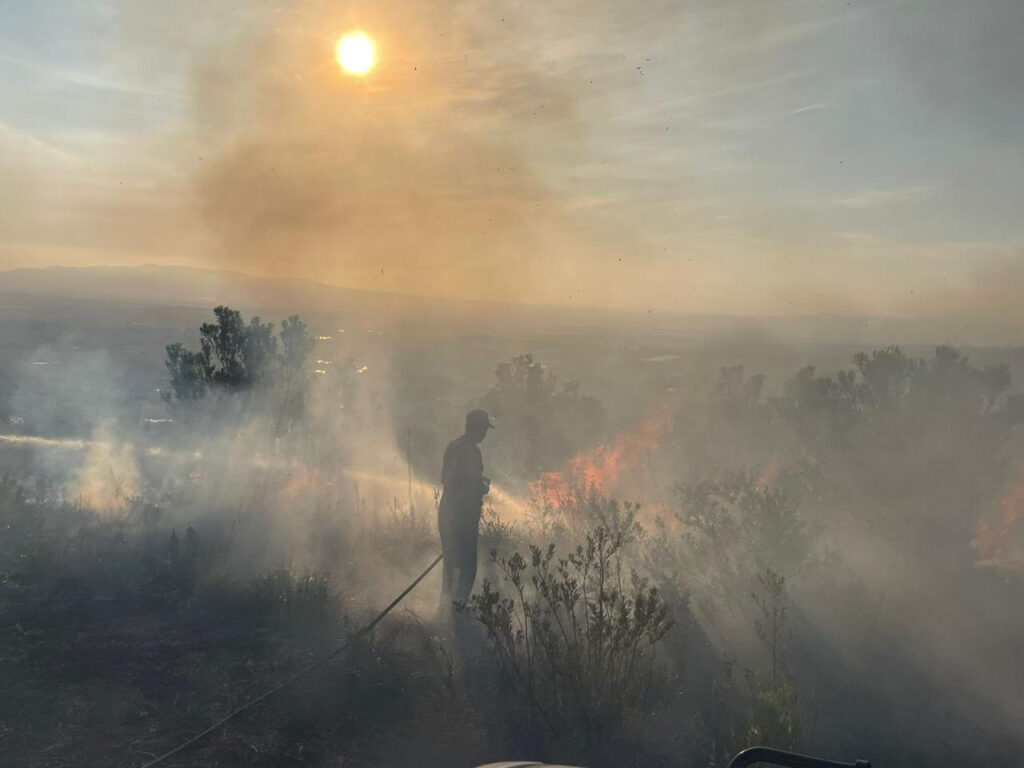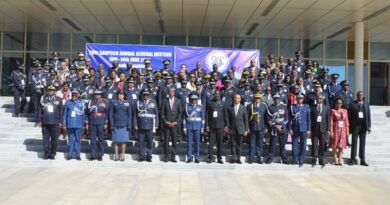Zambia’s Farmers Urged to Prepare for Wildfire Season
In Zambia, wildfires pose a growing threat to communities heavily reliant on agriculture. Climate change and erratic weather patterns, including rising temperatures and droughts, are contributing to the increasing frequency and severity of wildfires.
With the dry season typically lasting from May to October, and minimal rainfall during this period, the conditions are ripe for fires to spread rapidly.
Human activities, such as slash-and-burn farming, charcoal production, and careless disposal of cigarette butts, also exacerbate the risks.
Brad Barthorpe, Sales Manager for Husqvarna South Africa, underscores the importance of preparation ahead of fire season. According to Barthorpe, reducing fire risks involves proactive strategies, including implementing firebreaks and ensuring communities are equipped with the necessary tools and knowledge to handle fires effectively. By taking these steps, farmers can safeguard both their livelihoods and the environment.
Barthorpe shares his top five strategies to help farmers and smallholders prepare for the fire season:
- Burn Fire Breaks: Establishing firebreaks is crucial. Clearing wide strips of land, about 10-20 meters in width, around properties can help prevent the spread of wildfires. This should be done before the peak of the dry season to allow the firebreaks to be effective.
- Skill Up, Gear Up: Fire breaks alone won’t stop a wildfire. Farmers need to be properly trained and equipped to manage fires. This includes knowing how to backburn and use other firefighting techniques to control the spread of flames.
- Invest in Quality Equipment: When it comes to firefighting, the right tools can make all the difference. Barthorpe emphasizes the importance of investing in high-quality machinery, like those offered by Husqvarna, to ensure reliability in critical situations.
- Be Ready: Preparation is key. Farmers should check and maintain their firefighting equipment, such as fire beaters, water pumps, and chainsaws, ensuring that they are ready for action when needed.
- Share the Responsibility: Fire defense is a collective effort. Communities should come together to ensure that multiple individuals are trained and prepared to take action during an emergency, making the fire response system more robust.
Barthorpe highlights that the key to managing wildfire risks is readiness and collaboration. He stresses that, especially in Zambia, where wildfires are a recurrent issue, communities must work together, stay vigilant, and take proactive steps to protect their land and resources.
“Fire risks are part of Zambia’s landscape, and it’s up to everyone to stay prepared and take action when necessary,” Barthorpe concludes. With the right strategies, equipment, and community cooperation, it’s possible to reduce the damage caused by wildfires and protect vital agricultural resources.
Husqvarna, part of the Husqvarna Group, has been a leader in the development of innovative and high-quality products for shaping green spaces for over 300 years. From robotic lawn mowers to chainsaws, Husqvarna is dedicated to sustainability, product innovation, and digitalization. The company operates in over 100 countries, with its products supporting both professional and private users.



